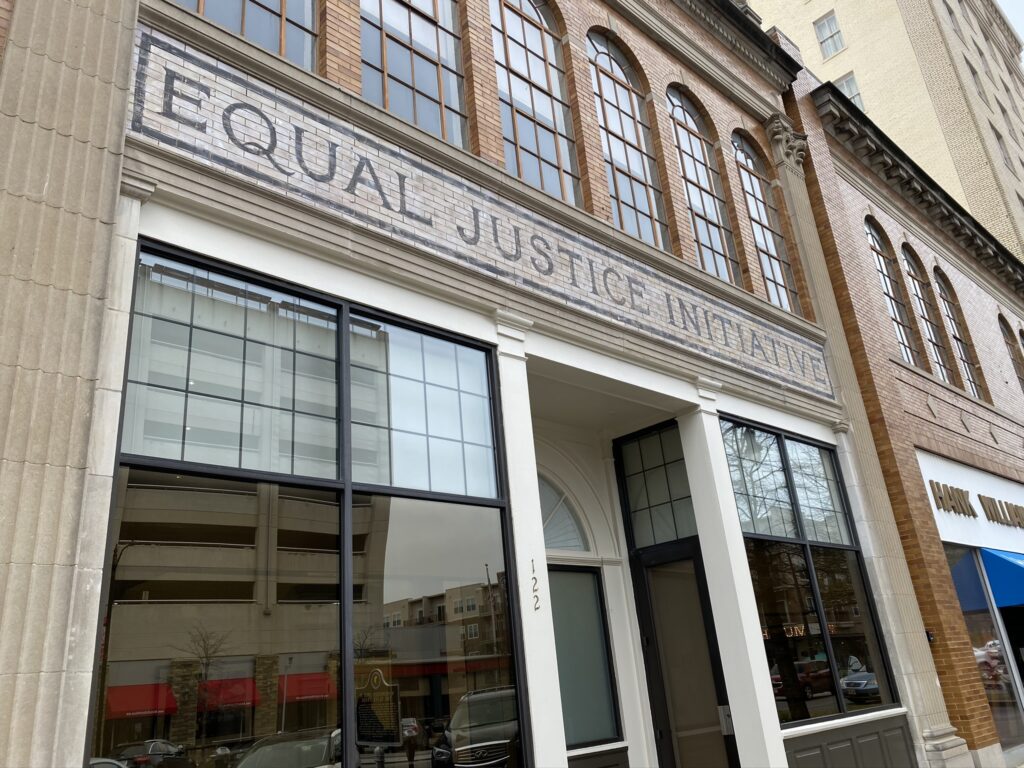Jamal Wilson feared for his life.
As an inmate at Alabama’s St. Clair Correctional Facility in March 2019, Wilson was taking a nap in his cell when another prisoner attacked and stabbed him. He survived, but the attack left him with a fractured skull.
“Jamal said he was afraid for his life — afraid for his life that it would happen again,” said AT&T Senior Legal Counsel Belinda Marin Boling, who is part of a team of lawyers who represented Wilson pro bono.
Boling and attorneys from Houston and Dallas offices of Foley Lardner filed a 72-page lawsuit in March 2021 alleging the prison violated the Eighth Amendment rights of Wilson and other inmates by allowing “egregious levels of violence, high volumes of contraband, irresponsible housing assignments, inadequate security protocols, insufficient training, indifferent management” and “recurring and substantial risks of serious harm to people incarcerated.”
The Alabama prison, which drew an investigation from the U.S. Department of Justice, was a breeding-ground for beatings, stabbings and rapes, Wilson’s lawyers alleged.
A federal judge rejected the state’s efforts to dismiss the case in 2022, and the parties reached a settlement agreement in the summer of 2024. Wilson was moved to Elmore Correctional Facility, a faith-based honor dormitory designated for people who maintain clean disciplinary records and participate in life skills programs.
But on Oct. 29, before the agreement could be implemented and just five months before Wilson would have been eligible for parole, Wilson was beaten to death.

“I was completely devastated and heartbroken,” Boling told The Texas Lawbook in an interview. “It just breaks my heart just to think about it, because he was so afraid and he expressed it to us multiple times and then that’s what happened.”
Wilson’s case was among 10 prison condition cases and two death penalty appeals handled pro bono by lawyers at in-house corporate counsel at AT&T, who worked with officials at Montgomery-based Equal Justice Initiative and its executive director, Bryan Stevenson.
Stevenson, who is author of New York Times bestseller Just Mercy, is the keynote speaker at next week’s Champions of Justice Gala, a major fundraiser held by the Texas Access to Justice Commission to help cover the legal costs for lawyers who represent military veterans.
The gala, which is being held April 30 at the Four Seasons Hotel in Austin, is being co-chaired by AT&T General Counsel David McAtee and Halliburton Chief Legal Officer Van Beckwith.
The genesis of AT&T’s work with EJI started in 2019 when McAtee read Stevenson’s book, which has now been made into a movie, and had him speak at the legal department’s annual retreat.

“His remarks were so powerful that it just hit us like a ton of bricks, all in a good way,” McAtee told The Lawbook. “I told my group that I am going to go to Montgomery and volunteer to take a case. If anyone wants to come with me, you are welcome to join.”
On Jan. 23, 2020, 53 corporate lawyers from Dallas-based AT&T took vacation time and paid their own travel expenses to spend time with Stevenson and the nonprofit EJI, which provides legal aid to incarcerated people.
“EJI brings the prison conditions to light via litigation,” McAtee said. “The prisoners were treated to horrible conditions. We all have the right to not be assaulted or killed, even in prison.”
As a result of the meetings in Montgomery, AT&T’s legal group put together a dozen teams to partner with EJI and outside counsel at law firms including Gibson Dunn, BakerHostetler, Sidley, Akin Gump, Kirkland & Ellis, King & Spalding, Foley, Steptoe and Norton Rose Fulbright. They also work with Alabama firms Baker Donelson, White Arnold & Dowd, Copeland Franco, Dentons Sirote and Dagney Johnson Law Group as local counsel.

The cases carry emotional weight and there is a learning curve, Boling admitted. Most of the lawyers have never handled these types of cases, she said. But EJI provides guidance, and the pro bono lawyers have found the causes worth the initial hurdles and emotional burdens, she said.
“I see [these cases] as not just legal matters, but as projects of compassion,” Boling said. “It is important that our pro bono clients like Jamal feel acknowledged and treated with dignity. We speak for those whose voices might otherwise go unheard.”
Wilson was at least the fifth person killed at that prison in the past two years, EJI reported. McAtee hearkened back to Stevenson’s comment at AT&T’s 2019 legal conference: “Pro bono needs to be proximate.”
“There’s no magic formula to pro bono service,” McAtee said. “But his one admonition was, ‘You have to get proximate with the need. You’ve got to get close. You’ve got to come into close quarters with those who need legal services and can’t afford them.”
“What’s so exciting about it for me,” McAtee said, “is it literally starts with one person — that’s [Stevenson] speaking to a group. And then that person finds one other person — which happened to be me. And then it multiplies from there.”
“That’s why [Stevenson] is so special and that’s what’s so special about pro bono work.”
